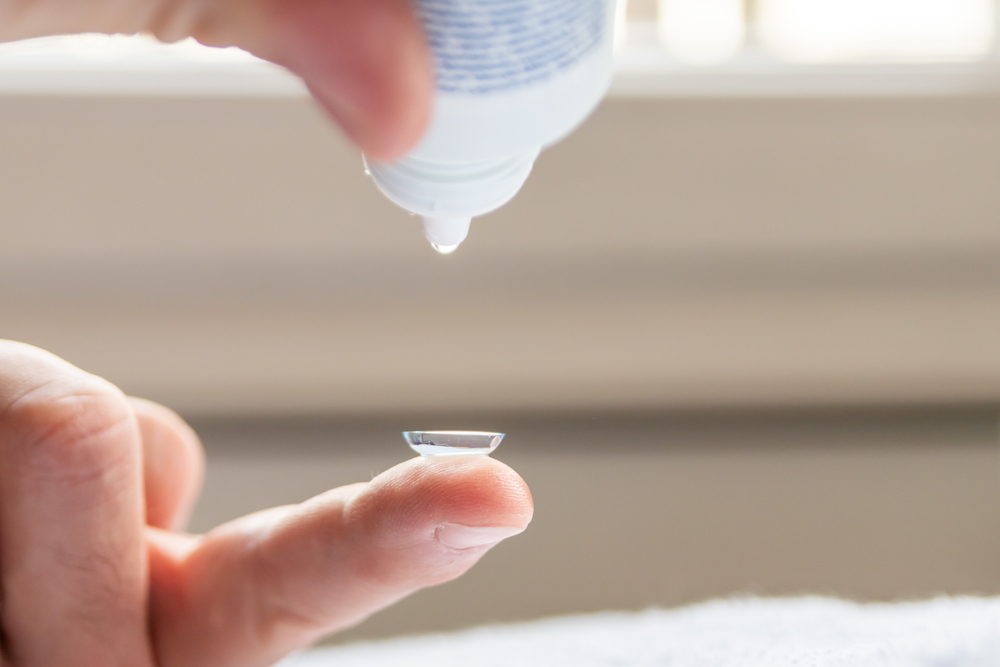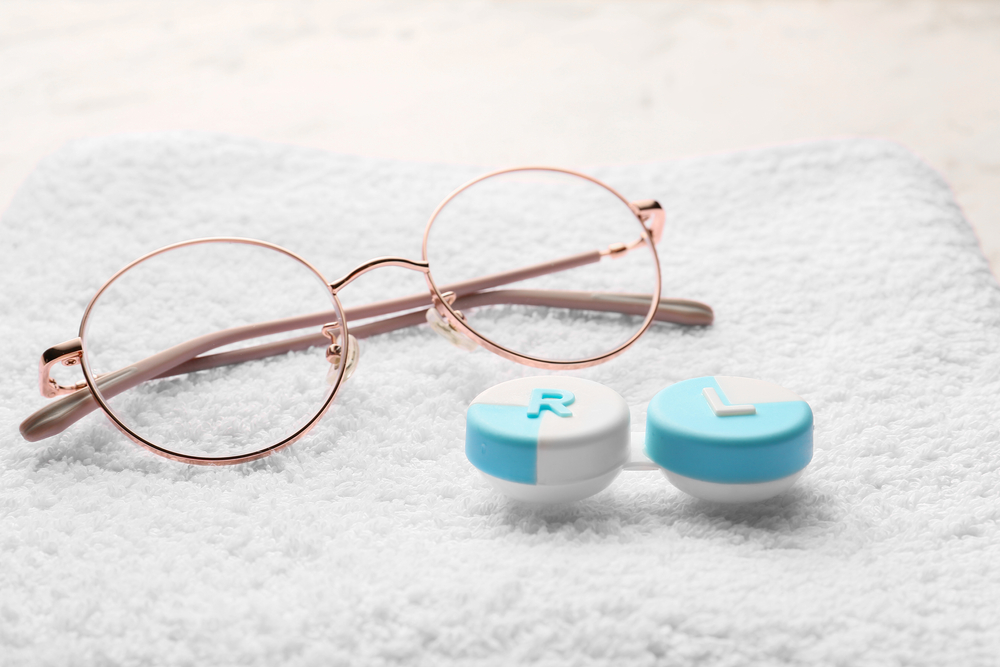6 Ways to Relieve Dry, Irritated Eyes While Wearing Contacts
Share
Feeling discomfort when wearing contact lenses? You’re not alone. Dry eyes and discomfort like itching, redness and irritation are pretty common problems among contact lens wearers. The sensation of dry eyes is reportedly the most common type of contact lens discomfort, with 40% of soft contact lens wearers worldwide experiencing it.
Dryness or irritation can result from mild causes like allergies or a poor fit, but it could also be a sign of a more serious underlying condition. However, wearing contact lenses should be a comfortable experience — especially if you’re wearing them daily. Read on to learn our six tips to overcome dry and irritated eyes!
1. Use eye drops or artificial tears
Whether you’re wearing lenses or not, it’s normal for our eyes to feel uncomfortable due to dryness or environmental factors like dust or dander in the air. An easy remedy would be getting eye drops for dry eyes, also known as artificial tears. Look out for products that are specifically formulated for use with contact lenses. They are a fuss-free and fast method of lubricating your eyes and clearing away any debris and irritants.
Plus, you can buy small individually packaged eye drops that fit conveniently in your bag if you experience dry eyes while on the go. These are also great as a way to rejuvenate your tired, strained eyes after long hours of staring at a computer screen!
2. Clean your lenses regularly

If you are using monthly or reusable contact lenses, be sure to clean your lenses every day with a high-quality lens solution. Don’t underestimate the importance of keeping your contact lenses clean! Not only does it help safeguard your eye health, but it also prevents irritation caused by build-up on the lens surface. Learn the do’s and don’ts of proper lens care in our guide.
3. Switch to a different type of lens
The contact lens market in Singapore is chock full of many lens types and materials. Even factors such as thickness and how soft or hard the lens is can significantly affect how a lens feels. There’s no one perfect lens type for everyone — you’ve got to try to discover what you like, and of course, consult with your eye care professional on what’s best for your condition.
If you are prone to dry eyes, we recommend opting for clearlab daily lens, clear 1-day, with aquagrip property. The lens’ special formulation allows much longer water retention. The lens gives a good comfort for the whole day long. . Clear 1-day is a soft contact lens designed to maintain the moisture levels of your eye for better wearability.
4. Give your eyes a break

Your eyes need time to rest, just like you! Try not to wear your contact lenses from the moment you open your eyes, all the way till bedtime. Make it part of your daily routine to remove them a few hours before bed, switching to glasses if necessary. This lets your eyes breathe. More importantly, it allows your eyes to receive much-needed exposure to oxygen and get nourished naturally from your tear film without your lenses in the way.
5. Dispose of your lenses & use a fresh pair accordingly
It is crucial to follow the directions of your lenses — for example, you’ll need to throw away daily disposable lenses after one day of use. Doing so will ensure your eyes remain free of irritants, as extended wear beyond what’s recommended can lead to an unwanted build-up on the lens surface.
6. Ensure your lenses fit well
The shape and size of your eye are unique. There’s no one-size-fits-all type of contact lens, meaning it’s totally possible to have gotten a lens that is not the right fit for you. Ill-fitting lenses can cause irritation, which could lead to more severe problems over time, such as corneal abrasion. Check with your eye care professional on the fit of your lenses. They will be able to measure your eyes and ensure you get a proper fit.
With these tips in mind, you’ll be well on your way to a more comfortable lens-wearing experience. If you continue facing discomfort or dry eyes, even after trying self-remedies, make an appointment with your optometrist to get professional help as soon as possible.